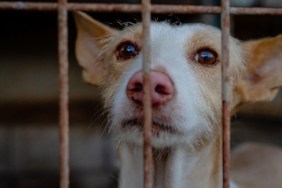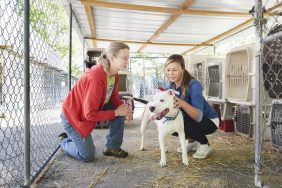
Dog breeding is bad. PETA says so. Your vegan friends say so. You don’t dare discuss it at the dog park lest you get mauled by well-intentioned but passionate dog owners. But why is breeding bad? No one ever bothered to explain it to you. Today, we’re going to.
Dog breeding is a centuries-old practice that aims to produce a specific type of dog that meets certain standards. However, as the incidence of puppy mills and irresponsible breeding practices increase, dog breeders have been taken to task and their reputations have been sullied. Ethical and responsible dog breeders do operate in the world, but the general consensus is that dog breeders are bad, and the topic of dog breeding has become a cultural taboo.
While some dog breeders maintain that they are producing puppies for companionship, competition, and service, critics argue that breeding dogs for profit or pleasure can lead to severe health problems and behavior issues in the animals.
We’re going to look at a few solid reasons why dog breeding is frowned upon by animal welfare advocates. But we’re also going to explain why someone might consider adopting a puppy from a breeder, too.
Dog Breeding Perpetuates Genetic Health Problems
Many purebred dogs suffer from genetic health problems that are often exacerbated by selective breeding. For example, breeding two dogs with short snouts, such as Bulldogs or Pugs, can lead to respiratory issues and difficulty breathing. Breeding dogs with short legs, such as Dachshunds or Corgis, can result in spinal issues and back pain. English Bulldogs have been so heavily inbred that they often experience breathing difficulties, hip dysplasia, and skin allergies. The list goes on, and many purebred dogs are prone to a range of genetic health problems that can lead to a diminished quality of life, expensive veterinary bills, and in some cases, premature death.
Despite this, dog breeders continue to breed animals with the same genetic predispositions, perpetuating the problem. Many breeders fail to test their dogs for genetic health issues before breeding them, and some even intentionally breed dogs with health issues because they believe it will make their puppies more valuable. This unethical practice only serves to create more sick animals and perpetuate a cycle of suffering.
Dog Breeding Can Result in Puppy Mills
According to the Humane Society of the United States, a puppy mill is defined as “an inhumane, commercial dog breeding facility in which the health of the dogs is disregarded in order to maintain a low overhead and maximize profits.”
Puppy mills are a major problem within the dog breeding industry. These mills are commercial breeding facilities that prioritize money over the well-being of canines. The living conditions in these mills are often deplorable, with dogs being confined to small, unsanitary cages and receiving little or no veterinary care. Puppies bred in puppy mills are usually sold to pet stores or online retailers as purebred dogs. Unsold puppies often end up being surrendered to shelters or are abandoned. No matter where they end up, these pups may have serious health problems as a result of inbreeding and living conditions when they were little.
Dog Breeders Contribute to Pet Overpopulation
One of the biggest reasons why dog breeding is bad is that it contributes to pet overpopulation. Every year, millions of dogs end up in animal shelters, many of whom are euthanized because there are not enough homes for them. By breeding more dogs, breeders only add to the problem.
Many breeders will sell puppies to anyone who has the money to buy them, without considering whether or not the person is a suitable owner. Some are sold to pet stores or online marketplaces, where they may end up in the hands of people who are ill-equipped to care for them. This lack of screening can lead to dogs ending up in abusive or neglectful homes, where they may suffer from malnutrition, physical abuse, or lack of socialization.
If a breeder is ethical, they will ask prospective owners to fill out an application, complete an interview and/or home visit, meet with the litter, and provide references to make sure the dog is going to a safe home with a competent, caring owner. Unfortunately, not all breeders adhere to these screening procedures, which may result in dogs living with owners who abuse or abandon them.
Why Do People Still Adopt Dogs From Breeders?
Despite the known problems with dog breeding, some people still prefer to buy dogs from dog breeders rather than adopt from shelters or rescues. One reason why is that people may want a specific breed or have a particular temperament, trait, or size in mind that they cannot find in a shelter or rescue dog. Additionally, some people may not be aware of the negative impacts of buying from breeders, or they may have misconceptions about shelter and rescue dogs’ behavior and health. Some people may also prefer to have a puppy that they can nurture and train from the beginning of their life. The decision to buy from a breeder or adopt from a shelter is a personal one, but it is essential to consider the welfare of the dogs and the impacts of our choices on the larger pet population.
What Can I Do to Help Stop Dog Breeding?
First and foremost, adopt, don’t shop, for your next pet. Visit your local Humane Society or contact a rescue organization and adopt one of the myriad dogs waiting for a forever home.
If you suspect a dog breeder is being neglectful or abusive, or you are aware of a puppy mill in your area, you can contact your local Humane Society, animal control agency, or police or sheriff’s department to report it. Laws about dog breeding and puppy mills vary from state to state, so action may or may not result depending on those laws.
This article was written in collaboration with ChatGPT.









